The Cambridge Analytica scandal, which was revealed in March 2018, has greatly shocked the public. Carole Cadwalladr, a feature writer for The Observer, was uncovering how United States (US) President Donald Trump, in cooperation with Cambridge Analytica, had been able to exploit the private data of millions of Facebook users to win the American elections.
After The Guardian and The New York Times had published the reportage, the report triggered multiple discoveries on how the Cambridge Analytica had not only rigged the US elections by exploiting netizens’ private data; it had also triggered political conflicts and divisions in numerous other countries. The Brexit case in England was just one example.
Carole’s investigation had not only earned her a nomination as one of the finalists for the 2019 Pulitzer Prize in the national reporting category, but had also raised public awareness on a global level on the importance of protecting data privacy.
In late January 2020, Carole was speaking at the Indonesian Data and Economic Conference 2020 (IDE 2020), where she also took the time to discuss with various stakeholders in Indonesia. During one conference session, initiated by the Indonesian Association for Media Development (PPMN) and the Katadata.co.id media outlet, Jaring.id was granted an exclusive right by Cadwalladr to use portions of her speech for publication. Here’s an excerpt of her speech, edited for clarity and content:
How the Cambridge Analytica investigation had come about…
Originally, this reportage process was not something which I had planned really carefully but was merely an accident. Within the last decade, technology issues have exclusively been covered by journalists who understand technology and have an interest in the area. As a feature writer, I initially tried to cover the issue from the angle of how technology had impacted people’s sociopolitical lives. Yet, I inevitably got sucked into a rabbit hole when, in November 2016, Donald Trump had just been elected president. That prompted me to browse the internet straight away. Then I trained myself to conduct an investigative reportage. At that time it had dawned on me that investigative journalism was something which would take a much longer endeavor that any other reportage types. This realization had actually convinced me to just delve deeper into the Cambridge Analytica affair.
In England and also in Indonesia, mass media outlets are short-staffed. They do not have reporters who have the luxury of taking a long time simply to conduct their reportage. My status as a freelance journalist, however, gave me the luxury to determine the kind of issue I’d like to pursue.
After Trump had been confirmed the winner of the 2016 elections, my editor asked me right away to write a report on the issue of “fake news”, which at that time had only been a relatively new concept.
Mark Zuckerberg initially claimed that Facebook had no involvement whatsoever in Trump’s victory. His speech had actually prompted me to start paying attention to the issue. I had originally been really interested in Facebook, not Google. I started searching for stuff randomly on Google, when I became puzzled by how the search engine actually worked.
In the beginning, I Googled the phrase “are Jews”. Google’s autosearch recommended the phrase “are Jews evil” and I clicked enter. Some distasteful websites appeared on the search results page, containing the phrase “yes, Jews are evil”. The same thing also happened when I typed “women” or “are women evil” on the engine’s search box: I came across lots of pages declaring “yes, women are evil”.
I was fortunate: I had a lot of scholar friends who had just started to map out the existence of such websites online, while trying to understand how these websites were interconnected. These friends of mine turned out to discover lots of fake news here and there. They reckoned that it was impossible that this was merely coincidental. That was the incident which had prompted my interest to find out more about what was going on on the internet.
Straight from the horse’s mouth
The lack of openness among technology companies was one of my major sources of frustrations during my investigative reporting. (Sources from) technology companies were behaving as if Cambridge Analytica was a no issue, while refusing to be interviewed. This reluctance has hampered the works of so many journalists and this also hampered my work back then. I went to Google. Then, on another occasion I also received some really poor response from Cambridge Analytica’s public relations officers.
When their sources responded to interview requests with denial, journalists were placed in a very difficult situation, rendering them unable to prove any accusations. Normally, as a feature writer, I would jump into a different subject matter (when my sources refused to speak). Yet, I felt quite strongly that my sources actually lied, prompting me to try and contact other sources who used to work for the same companies.
Upon listening to my initial findings about Facebook, one of my sources subsequently suggested that I met Christopher Wylie. Wylie left no traces at all online, let alone about his links to Cambridge Analytica. Trying to find him involved building lots of social connections and talking to lots of people. At that time, Christopher was simply waiting for someone to find him. There were some people who knew this scandal very well. When you searched for him and finally found him, he would willingly open himself to you and reveal a lot of stories. Yet, he would not automatically come to you. Therefore, I tried to expand my social circles and talk to as many people as possible.
Secrets of impactful reportage
Actually, many journalists had already covered what Facebook and Cambridge Analytica were up to (in exploiting their users’ private data), yet a lot of technology companies had ignored these findings. I decided I had to write a story which they could no longer afford to ignore. When I found Wylie, I knew straight away that he was the perfect source for this story. Not only he was an articulate person, he also had documents as proof. Yet, moreover, he also had his ears to the ground on technology companies and a deep understanding of the industry. Simply prompting him to speak about the activities of these technology companies alone was not enough; I needed to make his story more impactful, to the point where people could no longer ignore his words. This was why I eventually pitched the story to several media outlets. At the end of the day, what had turned the Cambridge Analytica reportage a reality was the fact that they had also (rigged the sociopolitical situations) across several parts of the globe. They used the internet to target some people and manipulate them politically.
Post-reportage threats
My journalistic work on the Cambridge Analytica issue has earned me a lot of enemies. At the same time, I have also gained support in equal measure from a lot of people who sympathized with the mounting backlash against me. Pursuing a vocation in journalism entails with it some scary risks. For instance, more journalists than ever have faced personal lawsuits recently. A lot of wealthy people can use the law to intimidate journalists and put an end to their reportage. It is easier to sue a journalist rather than to sue a mass media outlet. A ridiculous thing happened when I was speaking on a TED Talk conference along with representatives from two American mass media who had been benefited by the first amendment. I was sued on a personal level because of what I had said during my TED Talk session. I decided to conduct an online fundraising initiative to defend myself then.
Post-Cambridge Analytica
Cambridge Analytica has ceased its operations, yet in fact they still own lots of people’s personal data. One of their former staffers has already established a similar company. Now, this former staff member is working with one of Trump’s political campaign manager. Prior to the publication of this report, I met the Cambridge Analytica CEO and he said that he had already been doing the same trick in (rigging) about 156 elections across the world. It is also highly possible that they also conduct the same operation in Indonesia.
Brexit
The Brexit referendum has shocked so many people. The problem is, several surveys which had already been conducted before the elections have actually indicated that the result is, in actuality, not shocking at all. By using persuasive technology targeting certain segments of people, it takes (these technology companies) only 72 hours to rig electoral results (using their algorithmic analysis of personal data). This is by no means an ideal picture of how we do politics, general elections and democracy. This technology targets confused individuals by feeding them false information. This situation is very different from how we used to do politics and elections a long time ago, pre-internet.
Facebook and Google’s responsibilities
The Brexit referendum in England, Donald Trump’s victory in the United States’ elections, (Rodrigo) Duterte’s victory in the Philippines’ elections — which had happened just shortly before the Brexit referendum — these are the scandals which we need to address, to find a solution. Facebook actually played a major role in these three voting processes. Information on what is really going on, which groups are actually placing their ads on Facebook and the magnitude of funds that they disburse for such activities are the information that only Facebook knows. I believe that the public is supposed to be granted access to all these things for a proper auditing process to happen. Paid political advertisements are by no means a form of freedom of speech. They use the money for their own benefits and oftentimes Facebook ads also spread lies. As long as the political parties and politicians pay their advertisement money, Mark Zuckerberg never prohibits them from lying on Facebook.
Facebook’s response
Facebook has always claimed that their system has been quite transparent. The truth is, they haven’t really done their job well enough. During the last UK elections there was a political advertisement placed there by an organization, God only knows for whom this organization is actually working.
The government’s action has been quite correct in asking Facebook to erase several uploaded accounts and contents which they deem problematic. Some people are actually using social media for authoritarian-bent purposes to repress other people. Yet, I believe this is but a consequence of a global monopoly.
Using social media for communications
We still need the internet, need Facebook. We cannot simply throw the baby out with the bathwater and return to the era when social media did not exist. Under such circumstances, it’s important for us to educate people so they can distinguish fake news from real ones. You have to alter the direction that the discussions are taking. Exploitation happens when people give away detailed information on their private lives to technology companies. These companies then use the information to rig electoral and policymaking processes in various parts of the world. We have long assumed good things only about this technology. Now, we know that this is merely a lie.







